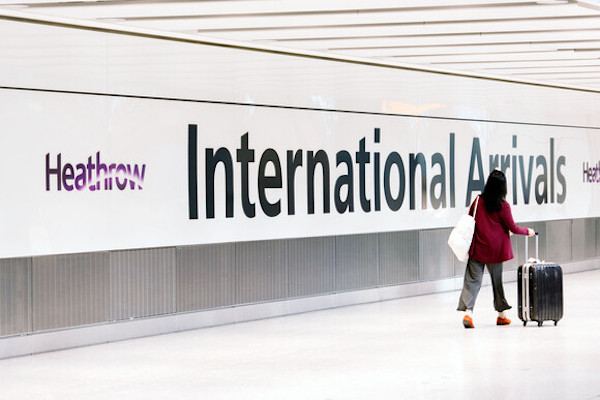The impending strike by Border Force staff at Heathrow Airport is primed to cause significant disruptions. More than 500 staff members are planning a three-day strike over a new roster dispute. This action coincides with the end of the half-term holidays, potentially impacting thousands of travellers.
Details of the Strike Action
More than 500 members of the Public and Commercial Services Union (PCS) employed at Heathrow are set to strike from May 31 to June 2. This follows a well-supported strike action earlier in May. The union claims the new roster system is causing widespread disquiet among staff, leading to this pivotal decision.
The impending strike is expected to disrupt passport checks, causing potential delays for travellers entering the UK. The action is strategically timed to coincide with the tail end of the half-term holidays, likely affecting a larger number of passengers.
Union’s Stance and Previous Actions
The PCS union has expressed that their members are deeply committed to this action, highlighting past successful strikes in April and May. According to the union, the previous actions were significant, and further strikes were anticipated due to unresolved issues with the Home Office.
In the lead-up to this decision, the union reached out to the Home Office, underscoring unresolved problems with the new roster. Despite the Home Office expressing disappointment over the strikes, they have yet to propose changes or address staff concerns adequately.
Home Office’s Response and Mitigation Plans
The Home Office has publicly stated its disappointment with the union’s decision but has not closed the door on discussions aimed at resolution. They maintain that the new working arrangements will align Heathrow staff schedules with other major ports and improve service delivery.
Robust plans have been affirmed to minimise traveller disruption during the strike days. Passengers are advised to follow the latest travel advice to avoid inconvenience. This cautious approach by the Home Office is designed to ensure operations continue smoothly amidst expected staff shortages.
A Home Office spokesperson indicated that talks could continue, although there remains a significant gap between the union’s demands and the department’s current position. This ongoing stand-off is a reflection of broader tensions within the public sector workforce.
Impact on Travellers and Airport Operations
Heathrow Airport’s management is actively collaborating with the Home Office to mitigate any fallout from the strike. Their focus lies in maintaining smooth airport operations despite the predicted staff shortages during critical holiday travel days.
Historical precedence has shown minimal passenger impact in previous strikes, although this cannot guarantee future outcomes. Passengers are encouraged to remain informed and prepared for possible changes in their travel plans.
Overall, the airport aims to safeguard passenger experience, despite inevitable service disruptions. The focus remains on keeping wait times to a minimum while ensuring stringent safety procedures.
Long-term Implications for Border Force Staff
A resolution to this dispute is crucial for long-term staff morale and operational efficiency. Continued strife without an agreement may foster a challenging work environment, impacting staff retention and recruitment.
The ongoing dispute highlights broader challenges in balancing operational needs with employee expectations within public services. It underscores the need for effective communication and negotiation between the government and workforce unions.
Future negotiations could set a precedent for handling similar disputes, potentially impacting policies across various public sectors. The resolution’s outcomes could influence how the government approaches workforce management in the future.
Responses from Stakeholders
Different stakeholders have varied perspectives on the strike. While the union remains steadfast in its demands, the Home Office seeks a balanced outcome that aligns staff interests with operational requirements.
Many travellers express concern over potential delays and disruptions; however, they show understanding of the staff’s grievances. This event has reignited discussions about the balance between service delivery and employee satisfaction.
The broader travel industry is watching closely, recognising that the outcome may influence future protocols and policies. This strike has highlighted the importance of resolving workforce disputes without compromising service standards.
Looking Ahead
As the scheduled strike dates approach, all parties are urged to reconvene for negotiations to avert service disruptions. Stakeholders acknowledge the pressing need for a resolution to foster harmony in operations.
Both the union and the Home Office must exhibit flexibility and a willingness to compromise. The ongoing negotiations are critical to restoring confidence among the workforce and ensuring smooth airport functions.
The forthcoming strikes at Heathrow by Border Force staff underscore the complexities of managing operational demands alongside employee expectations. Achieving a resolution is paramount to maintaining airport efficiency and worker satisfaction, a balance essential for future stability.

